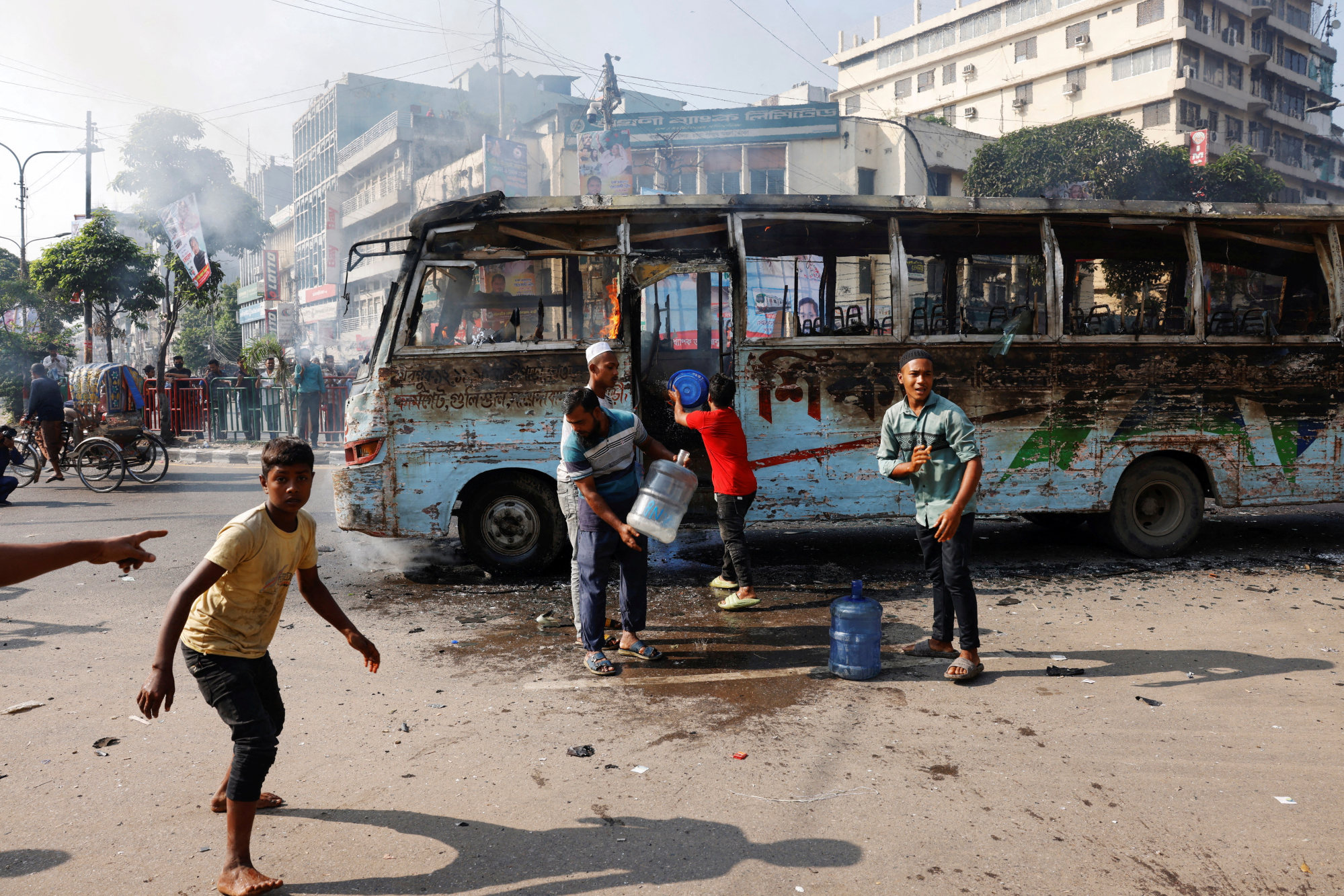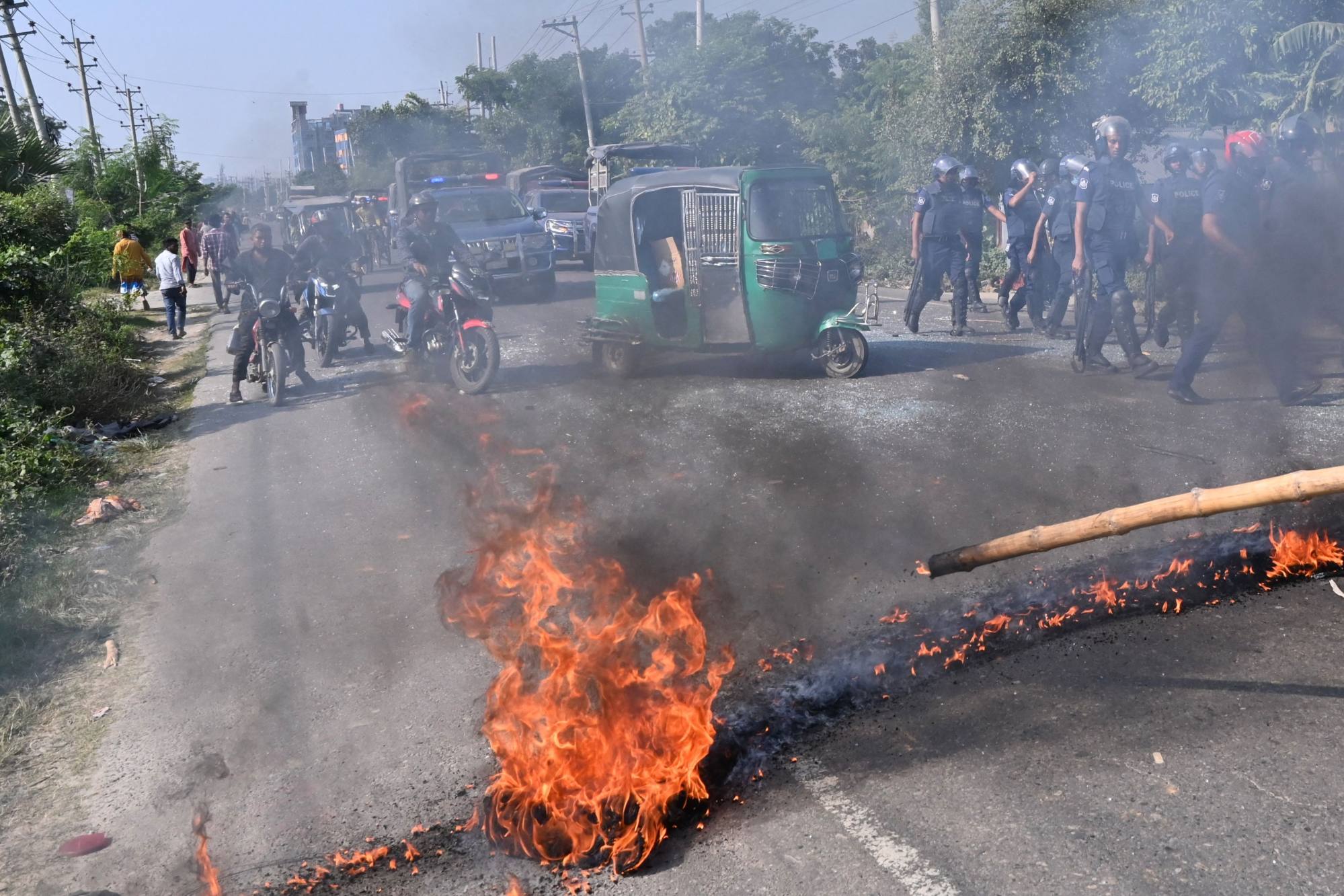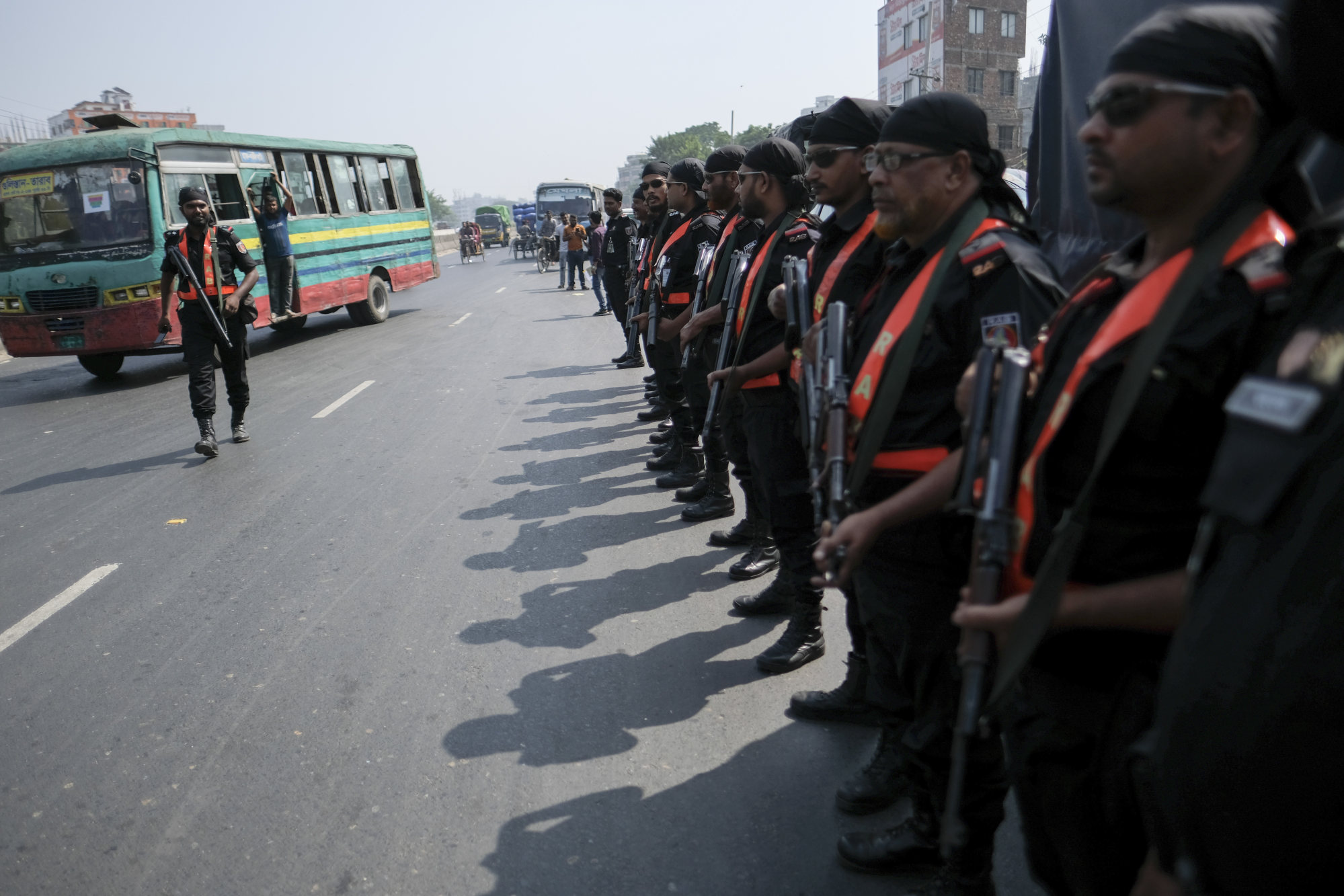
As strikes, clashes roil Bangladesh, opposition party vows to boycott polls in ‘do-or-die moment’
- Bangladesh’s opposition party will boycott January’s national polls, unless a caretaker government replaces PM Sheikh Hasina
- Critics of Hasina say her rule, since 2009, has brought in corruption, hyper-nationalism, erosion of freedoms and violence against her political rivals
Yet Murtaza, 33, said he still felt forced to join demonstrators over three days of strikes across the country, which have blocked transport in the capital, seen buses set ablaze and drawn tens of thousands to the streets.
They are demanding the resignation of Hasina, the 76-year-old prime minister who has been in charge since 2009.

At least three have been killed in clashes between demonstrators and police, according to a spokesman for the opposition Bangladesh National Party (BNP), with several others – including a policeman – killed during a rally last Saturday which also descended into violence.
The party says nearly 3,000 BNP activists have been arrested since then, while Bangladesh’s police chief, Inspector General of Police Chowdhury Abdullah Al-Mamun, has warned the law will come down hard on protesters who continue to be involved in blockades and arson.
On Thursday, the final day of the strike, the opposition said it would boycott elections slated for January next year, unless a caretaker government replaces Hasina and leads the country through the polls.
“This is a do-or-die moment for us,” BNP member Murtaza said. “It’s not just about the activists and supporters (of BNP) but about the future of our country’s democracy and its people.”

Hasina, the world’s longest serving female political leader, has powered the economy to lift millions from abject poverty and won two more elections – albeit of disputed fairness and with the opposition boycotting the 2014 general election.
To her supporters in the dominant Awami League party, which historically trades power with the BNP and its allies, Hasina has affixed the rising star tag to a South Asia nation that was often the first reference in global poverty conversations.
Her government has brought in investment, particularly from China in road construction and other infrastructure schemes.
But to her rivals, the economic dividend has come with corruption, hyper-nationalism and an erosion of freedoms that have led to the detention of BNP leaders, civil society activists and journalists, as well as a culture of political violence, which jeopardises the credibility of elections.

“We will not participate in any sham elections under this government,” BNP spokesperson Ruhul Kabir Rizvi said.
“We demand an impartial caretaker government; otherwise, we won’t lend legitimacy to a mock election held under this government.”
UN Secretary General Antonio Guterres voiced “concerns” over the violence and urged “all parties to avoid violence, excessive force, or arbitrary detentions … (and) upholding the rights to freedom of expression and peaceful assembly”, said Stéphane Dujarric, the secretary general’s spokesman, at the UN headquarters on Monday.
Bangladesh’s US$46 billion garment sector, which relies heavily on major markets in Europe and United States, could also be at risk as clashes intensify.
Famin arrived in Dhaka from Rajshahi, a district in northern Bangladesh to participate in the anti-government protest on Saturday. He says being a BNP activist these days means facing a government wielding a range of repressive tools to silence dissent.
Authorities are increasingly leveraging tech, such as surveillance and eavesdropping, to monitor activists and bring charges at later dates, he said.
“We are living in an age where it’s impossible to organise people without using mobile phones and digital platforms, however this is what makes us prone to surveillance and detention,” Famin said.
His involvement with the BNP has led to three short jail terms and around 12 charges including for arson, vandalism and obstruction of a public servant – allegations he vehemently denies and calls trumped-up as punishment for his politics.

But harried by the law, BNP activists are proactively educating themselves to avoid surveillance, turning to YouTube videos for safety tips.
“I am a pretty prominent face in Rajshahi, I knew if I wanted to come to the Dhaka protest like an ordinary passenger, I would get arrested by the police,” he explained.
“So I didn’t buy my tickets from Rajshahi, I switched off all my phones and travelled to a nearby town and under a fake name,” Famin said.
Police in Bangladesh have arrested at least three high-ranking BNP leaders in connection with the killing of a policeman during recent demonstrations, including Mirza Fakhrul Islam Alamgir, the party’s secretary general.
Human Rights Watch has urged Bangladesh’s international allies to make sure there is a cost for political harassment, intimidation, and imprisonment.
“International partners should make clear that they will not continue business as usual with Bangladesh as authorities carry out election abuses,” said Meenakshi Ganguly, deputy Asia director at Human Rights Watch.
“They should condemn the mass arrests and targeting of the opposition and lay out consequences for trade and diplomatic ties if Bangladesh fails to backtrack on its abuses.”

